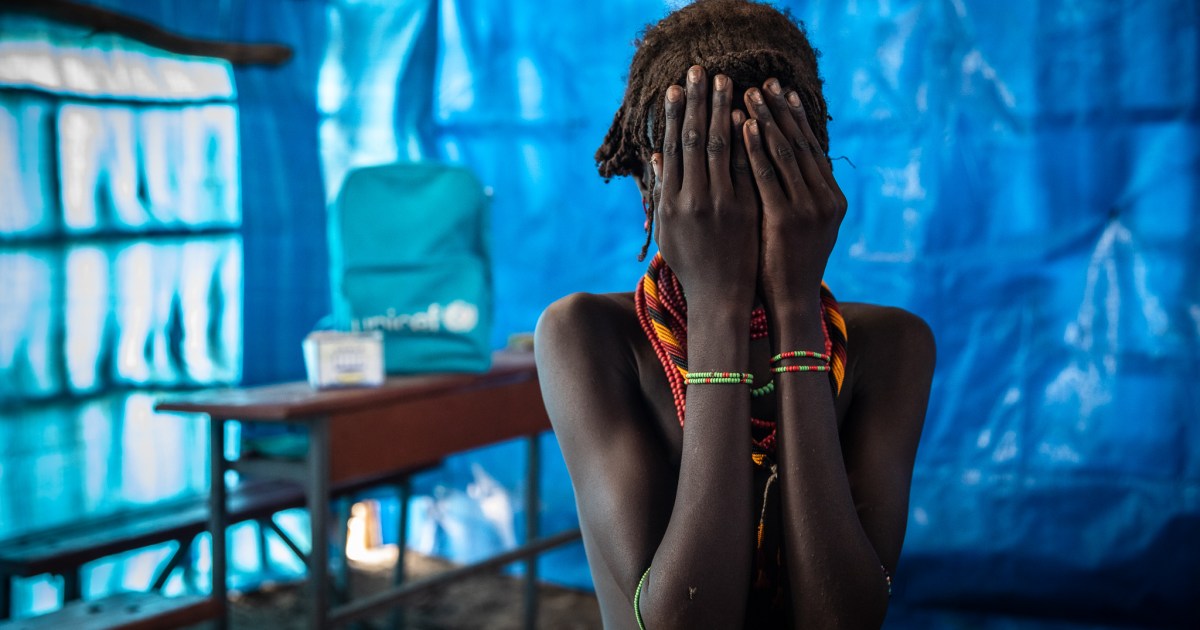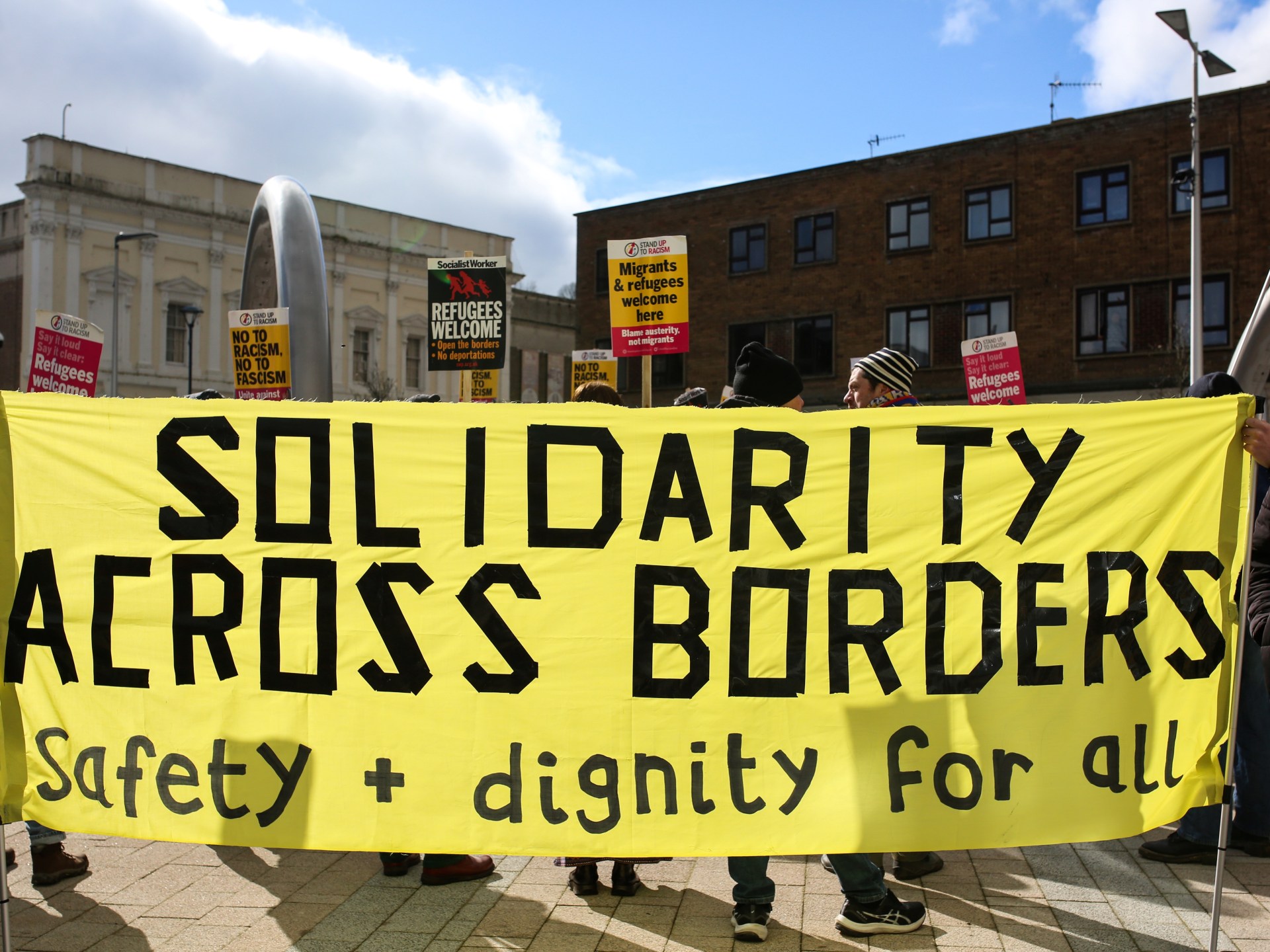Photos: Child marriages, FGM rising in drought-hit Horn of Africa | In Pictures News
Across the Horn of Africa, the worst drought the region has seen in 40 years is driving a shutdown of life there.
At least 10 million children are suffering as four rainy seasons have failed in the space of two years – killing vast swathes of livestock and crops and drying up water sources.
This year’s March to May rainy season is likely the driest on record and another season later this year could also fail.
More than 1.8 million children across Ethiopia, Kenya and Somalia require urgent treatment for life-threatening severe acute malnutrition. More than 200,000 people are judged to be at risk of famine in Somalia, according to the Famine Early Warning Network.
More than one million people across the region have been driven from their homes, in search of food and water.
Worse still, the effect of the war in Ukraine is set to tip more families in the Horn of Africa over the edge, with increasing food and fuel prices and reducing the availability of wheat imports.
Families are facing desperate choices to survive. Growing numbers of parents or caregivers are marrying off girls early to secure dowries to help support the rest of the family, to have one less mouth to feed, or in an attempt to help the bride enter a better-off household.
In the regions of Ethiopia worst affected by the drought – Somali; Oromia; and Southern Nations, Nationalities, and Peoples’ Region (SNNP) – child marriage has on average more than doubled in the space of one year, according to local government figures. Within the same time frame, cases of female genital mutilation or FGM in SNNP increased by 27 per cent.
The number of children at risk of dropping out of school in Ethiopia, Kenya, and Somalia due to the effect of the drought has tripled in the space of three months – from 1.1. million to an estimated 3.3 million children – leaving vast numbers of adolescent girls at greater risk of child marriage and FGM.
“We are seeing alarming rates of child marriage and FGM across the Horn of Africa – with some destitute families arranging to marry off girls as young as 12 to men more than five times their age,” says Andy Brooks, UNICEF’s Regional Child Protection Advisor for Eastern and Southern Africa.
UNICEF is providing essential life-saving aid to children and their families in dire need – including health, nutrition, immunisation, education, water and sanitation, and services to respond to the growing protection needs among vulnerable children and women. The children’s agency is also investing in long-term resilience work, such as drilling for reliable sources of groundwater and expanding cash transfer programmes.
This photo gallery was provided by UNICEF. Some names* have been changed to protect their identity.




